On 20 September 2021, HeGRiC held a one-day symposium to discuss the current state of game scholarship at the University of Helsinki (HY). The questions discussed were “What does game scholarship look like at HY, and what can be done to support it going forward?”
The day was originally planned for late 2020 but was delayed due to the pandemic. The program of the day is available to read here: https://blogs.helsinki.fi/hegric/2021/09/09/symposium-schedule/
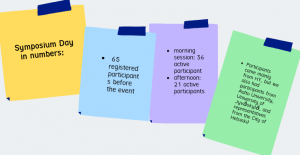
The morning session had three invited speakers to showcase some of the research being done on or with games at the University of Helsinki, including those who are being supervised by HY professors, to highlight our broader networks.
Our first speaker was Matilda Ståhl, M.Ed., from Åbo Akademi. Ståhl presented her soon-to-be-defended PhD work on online gaming communities, gender, normativity, and player values, under the title “Who is possible online?”
In the following talk, Dr Derek Fewster discussed the current situation for game scholarship at the Faculty of Arts at the University of Helsinki, noting that there is a very big interest in studying and learning about games, but that Fewster is one of very few faculty members who currently carry this load. “Better call Derek.” is a line he often hears in his position.
Finally, Dr Ben Cowley presented his and his working group’s work on the concept of flow, high performance cognition, and predictive processing, using games as a methodological tool.
After lunch, a discussion panel with some of the speakers and MA students Jakob Lindström (folkloristics) and Pavla Oubret (English literature) who are working or worked on games in their theses. The panel topics were focused on the interplay of subject areas, including the varying faculties at the University of Helsinki, the benefits, and drawbacks of interdisciplinary work and how to best facilitate such efforts.
At the end of the day, the symposium audience, speakers, and organizers participated in two workshops to answer the two main questions of the day:
- What are some obstacles to doing game scholarships at HY currently?
- How can these be solved?
Workshops:
In the following, we will present the results from the workshops and some additional thoughts on what the future could bring for HeGRiC and game scholarship at the University of Helsinki.
Some common themes from the workshops emerged:
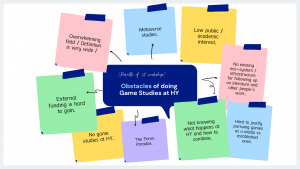
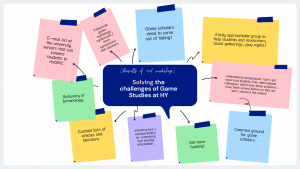
Summarizing workhops – WHERE ARE THESE MYTHICAL GAME SCHOLARS?

The main perceived obstacle for a thriving game studies community at the university currently is summarized well in one of the workshop comments: “The Fermi paradox.”
Astro-biologist Enrico Fermi popularly coined the term to denote the conflict between the suggested probability of life to humanity in space, and the lack of evidence thereof, asking: Where are they?
The game scholars in Helsinki are many, and numbers are rising, especially from a large pool of various cultural studies today, but, as evidenced by the symposium, game scholarship happens at most faculties at the university. The issue raised in the workshops points to the issue of lacking visibility and connection for students and scholars.
The many students and scholars interested in game studies are looking for a central hub for support, the workshops reveal. The symposium workshops also recognized common factors that compose challenges in an emerging field in the university: an overarching lack of resources towards funding, student supervision, teaching, courses, seminares and access to peer-support.
Our hope for HeGRic is to work towards solving these issues and bring interested parties together in game scholarship – and to model what it could look like in the University of Helsinki.
What’s next? – “Better call HeGRiC!?”
The great interest in the symposium signals to HeGRiC what we have long suspected: there is a significant interest in game scholarship across all faculties at the University of Helsinki. HeGRiC as an organisation is currently running on voluntary efforts but intends to formalize its work over the current academic year, and hopefully help implement some of the suggestions brought forward in the workshops. The most acute ones being starting a HeGRiC email list for game scholarship news and events and create a low-threshold community for students with an interest in game studies, who want to learn more, seek some kind of input on their own work, or just get to know like-minded students and scholars. HeGRiC will be reaching out to student organizations such as board games and role-playing clubs to assist with spreading the word.
Ways to join:
Link to email list: To subscribe to the email list, please send an email to majordomo@helsinki.fi containing the subject and message “subscribe hegric-info@helsinki.fi”. (https://helpdesk.it.helsinki.fi/en/instructions/collaboration-and-publication/e-mail/mailing-lists-basic-use)
Join the Games studies seminar? The seminar is multidisciplinary, open to all levels of students and (junior) scholars. Credits are negotiable. Contact: Derek.fewster@helsinki.fi
Join HeGRiC! HeGRiC has a Discord that anyone who is interested in game studies at the University of Helsinki can join and find each other. Please e-mail heidi.rautalahti@helsinki.fi for an invite.


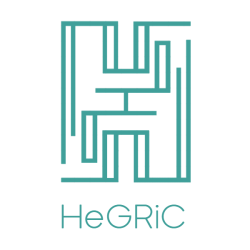

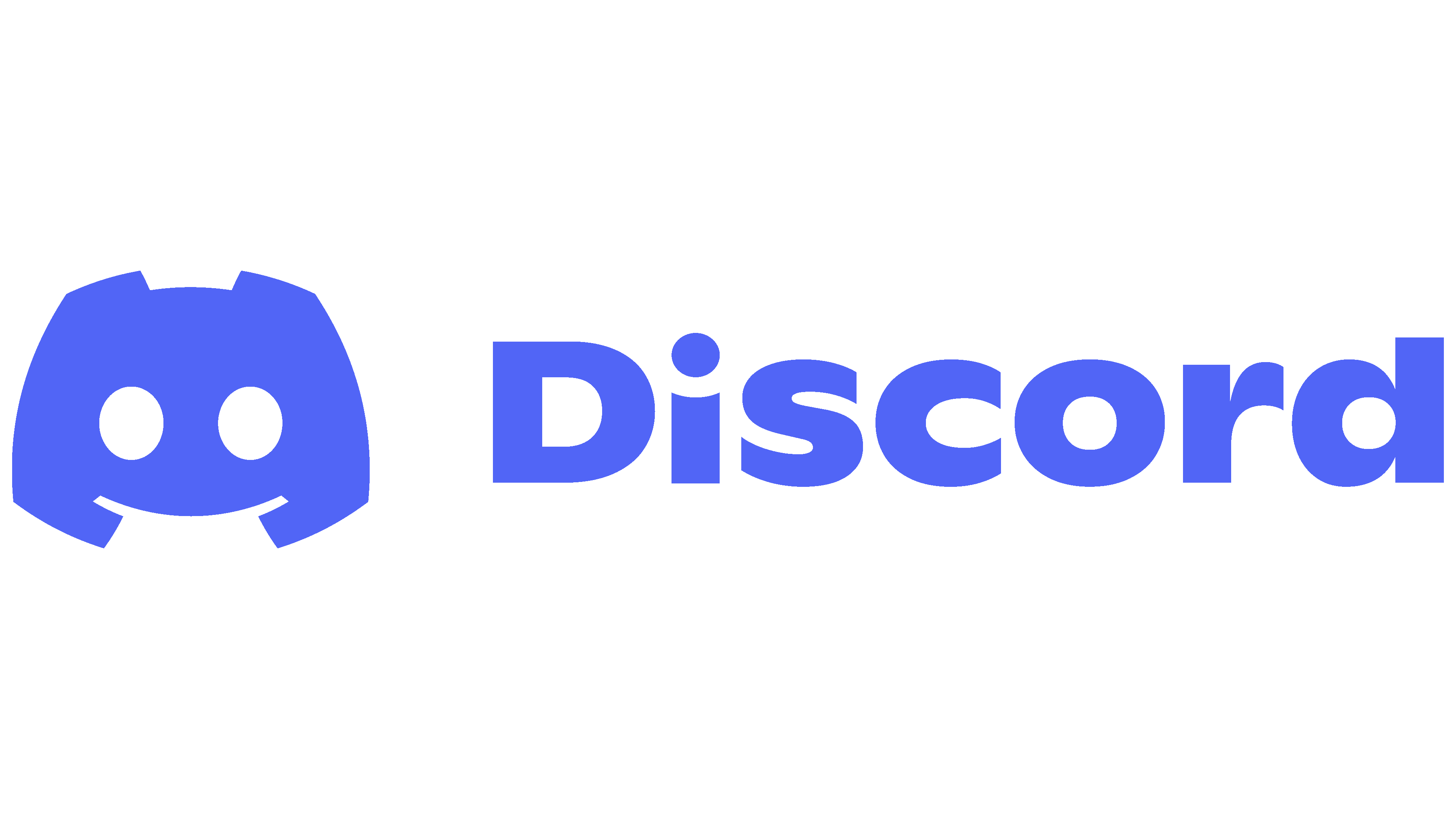 Join HeGRiC!
Join HeGRiC!